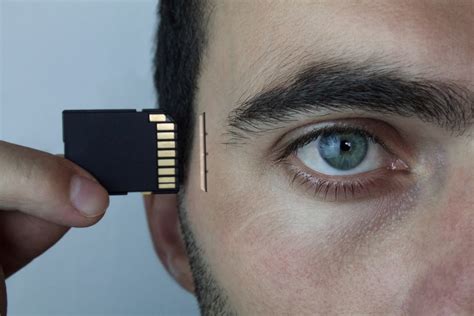In a world increasingly obsessed with self-improvement and mental clarity, the desire to erase or reset memories has transcended from science fiction into a tangible pursuit. Whether motivated by trauma, regret, or simply a yearning for a fresh start, the concept of erasing memories resonates deeply within psychological, neuroscientific, and bioethical domains. This essay explores the multifaceted landscape of memory deletion, examining current scientific breakthroughs, ethical considerations, practical applications, and future potentials—asserting that, while not a panacea, mastering memory clearance might ultimately redefine personal agency and mental well-being.
Understanding the Nature of Memories and Their Role in Identity
Memories are the foundational fabric of personal identity. They govern our self-perception, influence decision-making, and shape emotional responses. From a neurobiological standpoint, memories are stored as complex neural networks — involving synaptic plasticity within structures like the hippocampus and amygdala. The precise encoding and retrieval processes determine how vividly a memory persists or fades over time. Recognizing the complexity of these processes is critical for evaluating the feasibility and implications of memory erasure.
Historical context reveals that humans have long sought to forget painful memories—through cultural rituals, storytelling, and even pharmacological means. However, only recent advancements in neuroscience, particularly in neuropharmacology and neuromodulation, have begun to offer potential methods for targeted memory modification. The distinction between memory suppression—a conscious effort to forget—and actual erasure remains pivotal, with the latter demanding precise intervention at the cellular or circuit level.
Cutting-Edge Scientific Approaches to Memory Erasure

Current scientific efforts focus primarily on pharmacological treatments, neuromodulation techniques, and genetic interventions. These strategies aim to diminish or eliminate traumatic or undesired memories with increasing precision, though they are often still in experimental phases.
Pharmacological Methods: The Role of Beta-Blockers and Beyond
One of the most studied pharmacological agents in the realm of memory modulation is propranolol, a beta-adrenergic blocker. It disrupts the emotional strength of memories, particularly traumatic ones, by interfering with noradrenaline’s role in the amygdala during memory reconsolidation. Clinical trials have demonstrated that propranolol administered during memory retrieval can significantly reduce emotional response without erasing factual content. This approach indicates promising therapeutic potential for post-traumatic stress disorder (PTSD) but stops short of complete memory removal.
Neuromodulation and Brain-Computer Interfaces
Emerging technologies harness deep brain stimulation (DBS) and transcranial magnetic stimulation (TMS) to target specific neural circuits associated with unwanted memories. For example, TMS can temporarily disrupt activity in the dorsal anterior cingulate cortex, a hub for emotional regulation. While these methods can diminish the vividness or emotional intensity of memories, their permanence and broad applicability remain topics of ongoing investigation.
Genetic and Optogenetic Interventions
Advances in genetic editing, especially CRISPR-Cas9 genome editing, open unprecedented avenues for neural rewiring. In animal models, optogenetics—the use of light-sensitive proteins—has demonstrated precise control over memory engram cells, enabling scientists to activate or deactivate specific memories. Though promising, these approaches face significant ethical and technical barriers before translation to humans.
| Relevant Category | Substantive Data |
|---|---|
| Pharmacological efficacy | Propranolol reduces PTSD symptoms in 60-70% of cases, without erasing core memories |
| Neuromodulation scope | Targeted TMS can diminish emotional intensities but often needs repeat sessions |
| Genetic intervention potential | Engram-specific manipulation demonstrated in mice; human application remains experimental |

Ethical Dimensions: When Is Memory Erasure Justifiable?
The pursuit of erasing memories isn’t merely a technical challenge but also an ethical minefield. On the one hand, eliminating traumatic memories could alleviate human suffering, potentially transforming mental health treatment. On the other hand, the sanctity of personal history and the authenticity of experience threaten to be compromised by such interventions.
Questions about consent, coercion, and the societal implications pervade the discourse. Would widespread availability of memory erasure lead to dystopian scenarios—like erasing inconvenient truths or manipulating collective consciousness? The potential for misuse warrants rigorous regulation and ethical oversight, rooted in respect for autonomy and informed consent.
The delicate balance lies in empowering individuals while safeguarding human rights and societal integrity. As bioethicists warn, unchecked access to memory modification tools could distort notions of accountability, authenticity, and personal growth.
Practical Applications: Therapeutics and Beyond
Despite lingering ethical debates, the therapeutic potential of memory erasure tools remains substantial. PTSD treatment, where intrusive and persistent trauma-related memories hinder recovery, could benefit significantly. Similarly, pharmacological suppression of addictive memories might revolutionize addiction therapy, reducing relapse rates and enabling healthier lifestyles.
Furthermore, memory erasure could extend to alleviating phobias, reducing anxiety disorders, or even suppressing regret and grief that impede daily functioning. These applications highlight the importance of developing highly selective, reversible, and safe methods—emphasizing the need for personalized interventions aligned with individual needs and values.
Limitations and Risks of Memory Clearance Technologies
Five key challenges hinder the full realization of memory erasure: incomplete understanding of the memory engram, risks of unintended neural disruptions, variability in individual responses, ethical concerns about altering personal identity, and the potential for abuse.
Additionally, the long-term effects of manipulating neural circuits remain largely unknown. Could erasing one memory inadvertently weaken related cognitive or emotional processes? These questions necessitate cautious, incremental progress bolstered by rigorous scientific validation.
| Relevant Category | Data & Context |
|---|---|
| Long-term safety | Insufficient data; animal studies suggest possible neural circuit reorganization challenges |
| Reversibility | Most current methods are reversible, but permanence needs further validation |
| Personal identity preservation | Complex; erasing memories can redefine self-concept, raising philosophical dilemmas |
Future Trajectories: Toward Precise and Ethical Memory Management

The horizon of memory management technology promises increasing precision—leveraging advances in nanotechnology, artificial intelligence, and neurotechnology. Future innovations may enable selective, reversible, and minimally invasive methods, empowering individuals to tailor their experiential landscape without compromising their identity’s authenticity.
Development of engram-specific targeting—the neural substrates of discrete memories—will be crucial. This precision will help prevent collateral neural damage and support individual autonomy, ensuring that only undesirable or harmful memories are affected.
Simultaneously, societal governance must evolve to establish responsible use, informed consent protocols, and safeguards against misuse. Philosophers and scientists alike may need to revisit notions of conscience, responsibility, and integrity in light of these emerging capabilities.
Summary of Key Considerations for the Future
- Advances in neurotechnology are steadily approaching true memory-selective interventions.
- Ethical frameworks must be integrated into technological development to avoid dystopian misuse.
- Focus on reversibility, safety, and individual consent will be paramount for responsible deployment.
- Interdisciplinary collaboration between neuroscientists, ethicists, and policymakers is essential to navigate this complex frontier.
Can complete memory erasure ever become a reality?
+While scientific advancements are promising, complete, permanent erasure of specific memories raises both technical and ethical questions. Currently, methods are primarily modulatory, and full deletion remains a future possibility rather than a present reality.
What are the biggest risks associated with memory deletion technologies?
+Risks include unintended neural damage, loss of essential memories that define personal identity, ethical misuse such as manipulation or coercion, and the potential long-term impact on brain function—areas that require cautious and regulated development.
How might memory erasure impact society as a whole?
+Societal impacts could range from improved mental health outcomes to dystopian scenarios involving mass manipulation or loss of collective history. Responsible governance and ethical standards will need to adapt rapidly as capabilities evolve.
